Anthony Majewski started his career in education in 1999. He has been the principal of Hill-Freedman World Academy since 2006, where he was responsible for leading the school’s expansion from a middle school to a middle/high school. In 2014, the school received a US Department of Education National Blue Ribbon Schools Award, and it now offers both the International Baccalaureate Middle Years Program and the IB Diploma Program. In his previous position, Anthony was the principal of the Nebinger School. He is a recipient of the 2018 Marcus Foster Award, the 2014 Lindback Distinguished Principal Award, and the 2014 Rose Lindebaum Outstanding Principals Award.
Lorrie McKinley
Partner, McKinley and Ryan, LLC
Lorrie McKinley is a founding partner at McKinley and Ryan, LLC, a law firm specializing in education and employment law and serving clients in Eastern and Central Pennsylvania. Lorrie is an expert in special education advocacy and litigation and employment law, and has counseled and co-counseled several federal court cases involving disability rights in education and employment. She has also taught civil practice courses at the University of Pennsylvania Carey Law School, and previously served as an adjunct professor at the Villanova University School of Law. A Temple University School of Law graduate, Lorrie is admitted to practice law in the Eastern District of Pennsylvania, the US Court of Appeals for the Third Circuit, and the US Supreme Court.
Dale Michaels
Associate Professor of Psychology, Thomas Jefferson University
Dale Michales is a licensed professional counselor and an associate professor of psychology at Thomas Jefferson University. He has over 32 years of experience in private practice and residential treatments, and works with children, teenagers, and adults. He specializes in mood and anxiety disorders, developmental trauma, attentional difficulties, and substance abuse and dependence. Dale earned a bachelor’s degree from Messiah College and a master’s degree from Villanova University.

Sylvester Mobley
Founder and CEO, Coded by Kids

Sylvester Mobley is the founder and CEO of Coded by Kids, a youth tech education nonprofit that serves hundreds of students in the region. He also launched the early-stage venture capital firm Plain Sight Capital, which supports underrepresented founders of tech-driven startups. Sylvester focuses his work on preparing underrepresented people for careers in the tech and innovation space.
What is something you have learned from your students?
I’m continually inspired by their curiosity, their determination, and their aptitude to learn. Because our programs are designed to provide people of all backgrounds with beginner to advanced level tech skills in areas where the lack of diversity, equity, and inclusion are the greatest, I have the pleasure of watching our students grow their skills. Our students have taught me that if we give our youth the right tools, skills, and encouragement, their creativity has no limits.
What conditions do you think are necessary for a safe and effective learning environment?
Clear expectations and curiosity. Often, our students are in ineffective environments that set a low bar for success. We prematurely put boundaries on students that could exceed those expectations, if given the chance. When we raise the bar and eliminate the fear of failure, students are more willing to try new things. They might fail, and that’s okay. It’s the prerequisite for getting to the next level.
How do we ensure those without privilege have equal access to quality education and opportunity?
We need to create a system that supports students with engaging, holistic educational programming in and outside of their classrooms. For many, these opportunities are out of reach. At Coded By Kids, our programs supplement what students learn in school. Our project-based learning programs ensure that students are highly engaged and gain real-world skills. We connect our students to mentors to ensure they have a strong network and support system they can turn to even after graduation.
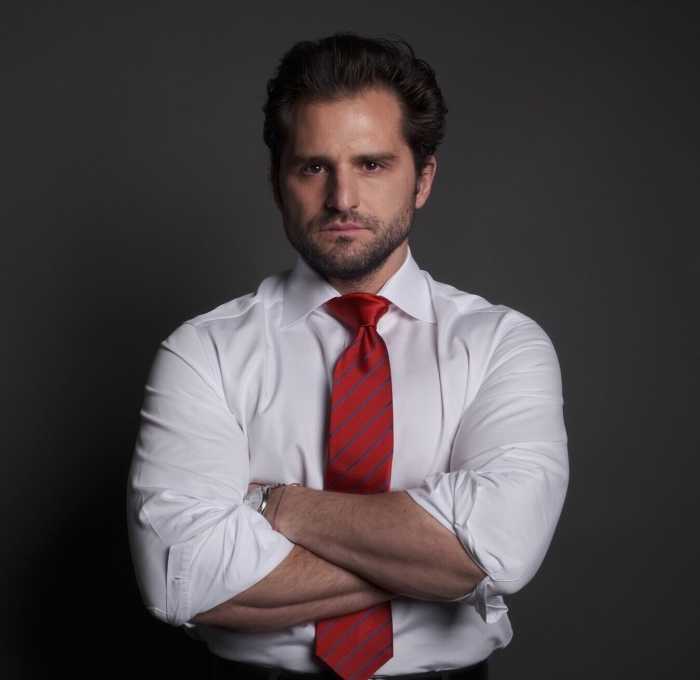
Joseph Montgomery
Educational Rights Attorney, EducationLawyers.com

Joseph Montgomery founded EducationLawyers.com as a way to fully realize his passion for helping children and families who are facing difficulties in school. Educational benefits are not always given out as freely as the law and policies intend, and sometimes it is necessary for parents and students to seek counsel when their educational and civil rights are violated. EducationLawyers.com has made it their mission to ensure that all families, regardless of income, have access to a free and appropriate public education.
What is something you have learned from your students?
We have assisted thousands of students in the past 10 years. From those thousands of students, one recurring theme is the importance of family in the educational process. We are a family organization, and my mother, Dr. Mary Montgomery, has inspired me to value education above most other things and to never stop learning. I see that even in the face of adversity, it is the students with zealous advocates for parents who are most likely to succeed.
What was your favorite moment or experience in your own education?
As a senior in high school, a teacher told me to save my money and not go to college, implying that I would not be successful, and to invest in a home instead. 20 years later, I operate three EducationLawyers.com offices across three states, and have helped thousands of children gain access to educational supports and services. Rather than being discouraged by someone who did not share my vision, I was emboldened, and quickly learned to follow my own spirit and to believe in myself; because sometimes, all I have is myself.
What conditions do you think are necessary for a safe and effective learning environment?
A safe and effective learning environment requires that we be inclusive at all times and that all students are exposed to a spectrum of abilities. Inclusion demands respect, patience, individualized instruction, and meeting students’ needs while recognizing their specific skills and talents. Fish can’t climb trees and squirrels can’t hold their breath forever, but they both can thrive in their appropriate environments. Especially designing the instruction and individualizing the delivery is the only option.
Jovan A. Moore
Principal, Girard Academy Music Program
Jovan A. Moore is the principal of Girard Academy Music Program, a special admissions school that focuses on music and academics. In this capacity, Jovan serves as the instructional leader for more than 620 students. In 2021, the school received a US Department of Education National Blue Ribbon Schools Award. Prior to this, Jovan served as a teacher, assistant principal, and principal for the School District of Philadelphia. She earned a bachelor’s degree from Miami University, as well as two master’s degrees in Education from Lehigh University and the University of Pennsylvania.
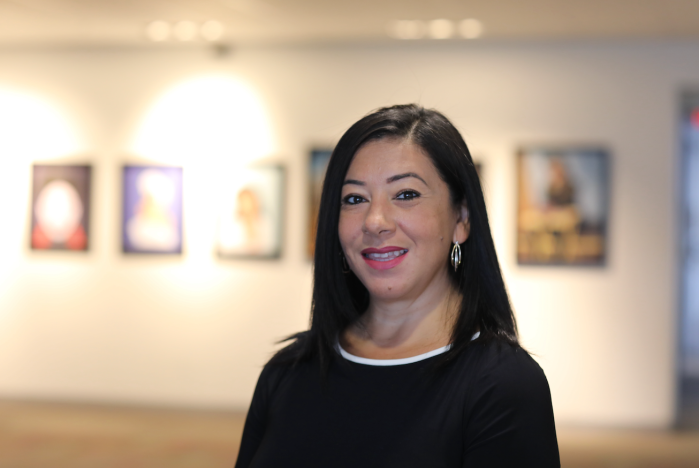
Evelyn Nuñez
Chief of Schools, School District of Philadelphia

Dr. Evelyn Nuñez is a proud product of the School District of Philadelphia and a first-generation graduate. Dr. Nuñez’s career has spanned 29 years, beginning as a bilingual elementary teacher. She currently serves as the chief of school for the School District of Philadelphia. With a student-first focus, Dr. Nuñez is committed to ensuring all students receive a high-quality education, working collaboratively with stakeholders, creating partnerships, and building relationships.
What is something you have learned from your students?
I have learned that relationships matter, and that if I want to truly impact a student, they have to be receptive to what I have to teach them, and they have to want to learn. Taking the time to get to know each student as an individual and defining a respectful teaching and learning rapport is pivotal. I have learned that as a teacher, you impact students’ lives well beyond the time they are in your classroom.
What was your favorite moment or experience in your own education?
In high school, I learned that the percentage of Latinos with doctorate degrees in the nation was in the single digits, and even smaller for Latinas. My most memorable experience in my education was the day I was conferred as Dr. Evelyn Nuñez. My family and I were very emotional, as not only was I the first in our family to attend and graduate from college, but the first to obtain a doctorate degree as well. Now, it’s my turn to pay it forward by inspiring other Black and brown peers to obtain a doctorate degree.
What conditions do you think are necessary for a safe and effective learning environment?
I believe that a safe and effective learning environment consists of a bright and clean area where teachers serve as facilitators of learning and engage students in intellectually challenging content while also meeting their social, emotional, and intellectual needs. These environments are supported by individuals with an intentional vision and shared values. I believe safe and effective learning environments empower learners to be innovative and collaborative, all while fostering positive relationships.
How do we ensure those without privilege have equal access to quality education and opportunity?
We must begin by ensuring that we equip school districts with a fair funding formula in order to equitably provide the resources needed. Schools should be managed by strong and stable leaders who create conditions for teachers to teach well-defined, standards-based, and differentiated lessons to all students. Communities need to be invested in and engaged with so that collaboratively, we can create conditions for all children to academically and socially engaged.
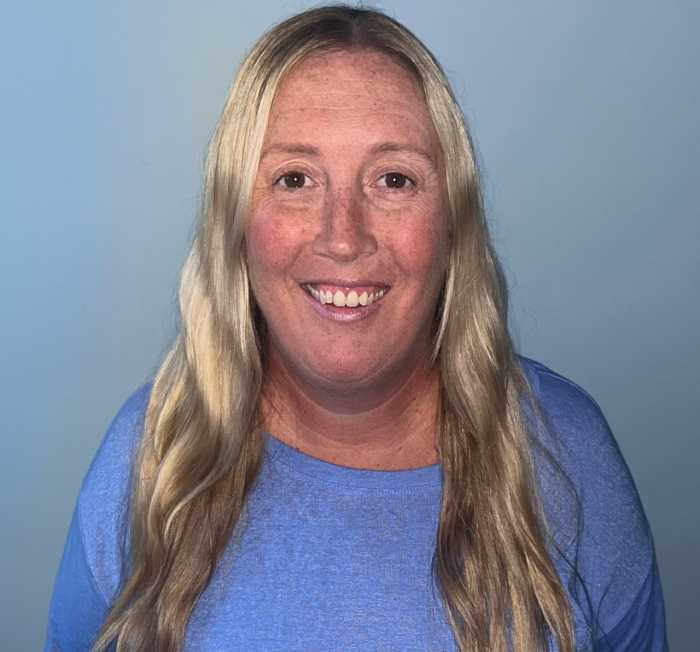
Brianna O’Donnell
Dean of Students, Franklin Towne Charter High School

Brianna O’Donnell is the dean of students at Franklin Towne Charter High School, a Philadelphia school located just a few blocks from where she grew up. She has viewed teaching and coaching as her dream career path since she attended St. Hubert Catholic High School. Brianna graduated from Widener University in 2003, and went on to join Towne the following year. She has held a variety of positions at the school, including working with the National Honor Society on community outreach, coaching the soccer team to five championships, chairing a department, and working with students as dean of students.
What is something you have learned from your students?
I learned that effort is a major reason individuals find success. Attending school in a large urban district can include challenges. These occur both inside and outside of the classroom. The students at Towne take pride in their work, school, and community. As a result, they care enough to take the time and put the effort in to accomplish their goals. Witnessing their attempts to collaborate with classmates, pursue their passions, and take pride in their school has inspired me. I challenge myself to meet their level of effort.
What was your favorite moment or experience in your own education?
I had some great experiences during my senior year. One of the best was when I organized a trip to the Philadelphia museums. I always loved the history of my city, and I believe in the power of hands-on learning. On this trip to the Franklin Institute, I enjoyed observing my class explore the museum and discover areas that piqued their curiosity and interests. Because Franklin Towne’s location is accessible to Center City, our students have the opportunity to absorb Philadelphia’s rich history, and I always encourage students to plan time for a visit.
What conditions do you think are necessary for a safe and effective learning environment?
As a teacher, I focus on three ideas to create a safe and effective environment. It is important that mutual trust exists between the students and the faculty. Students must trust that our methods are in their best interest, and as faculty, we trust that the students will work to improve their skills. Acceptance is another; teenagers want to feel that their ideas are welcome. Allowing students to communicate in an accepting space leads to focused learning. Most importantly, we have to encourage our students to grow. Learning is an active process, and students need encouragement to give their best effort.
How do we ensure those without privilege have equal access to quality education and opportunity?
Our school organizes its curriculum and activities to meet the needs of our student body. We educate our staff on equity and focus on providing opportunities to our students so that they can access the courses they’re most interested in. While we strive to do our best on a daily basis, our most important goal is to offer our students a quality education and opportunity.
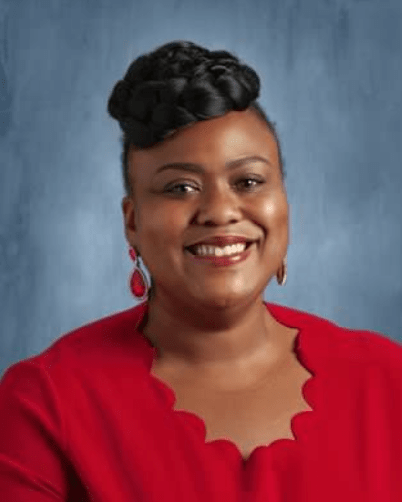
Tiffany Osei
Principal, Robert E. Lamberton Elementary School

Tiffany Osei is a native of Philadelphia and a proud product of the School District of Philadelphia. She earned a bachelor’s degree in Communications from Howard University, an MDiv from Virginia Union University, and a master’s degree in Teaching from Trinity University. She is currently pursuing a doctorate in Education at the University of Pennsylvania. Over the past 16 years, Tiffany has served as a literacy tutor, teacher, assistant principal, and principal. She is currently the principal of Robert E. Lamberton Elementary School and a proud member of Delta Sigma Theta Sorority, Inc.
What is something you have learned from your students?
Students have taught me the importance of flexibility. While I am intentional about preparing and planning for student learning, I have learned the importance of living in those teachable moments. Allowing students to take detours in our classroom discussions occasionally is essential to their growth as learners and helps them take ownership of their learning experiences. Their willingness to ask questions and take risks has taught me not to be afraid of going with the flow.
What was your favorite moment or experience in your own education?
My favorite moment in my educational journey was when I entered my first year at Howard University. For the first time in my life, I had the option of deciding what I would study. I primarily selected courses in history, writing, and film. This experience taught me the importance of student choice. While there are set standards that students must master to be college and career ready, if learning is meaningful, students should have a voice in the process.
What conditions do you think are necessary for a safe and effective learning environment?
To be a safe and effective learning environment, a school must be a place where diversity is acknowledged, discussed, and celebrated continuously. When students enter the classrooms, they should be able to bring all aspects of their identity into their learning. They should see their reflections in the classroom displays, the books they read, and the instructional tasks they engage in. Instead of being taught to conform and fit into systems that oppress them, students should be taught to be questioners, explorers, innovators, and disrupters.
How do we ensure those without privilege have equal access to quality education and opportunity?
Schools must set high expectations for all students to ensure that those without privilege have equal access to quality education and opportunity. Teachers must have a mindset that all students can achieve at a high level, and the expertise to provide students with high-quality instruction. School leaders must support teachers in their professional growth to meet the needs of all students, and must engage families in supporting student achievement.
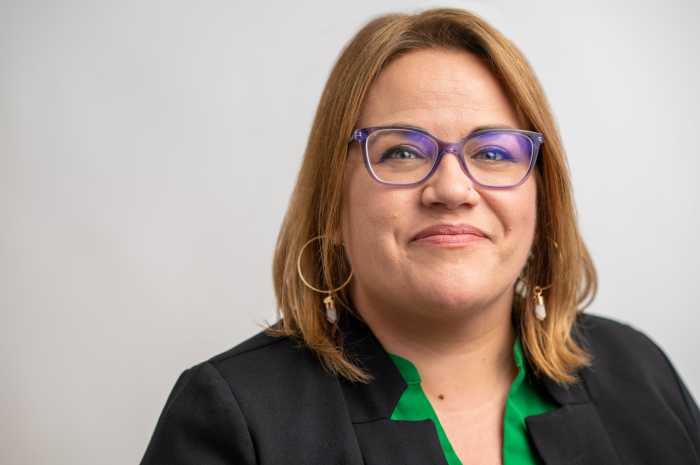
Lauren Overton
Principal, The Sadie Tanner Mossell Alexander University of Pennsylvania Partnership School

Lauren Overton is the principal of the Sadie Tanner Mossell Alexander University of Pennsylvania Partnership School and a two-time National Blue Ribbon Award winner. She serves on the board of GLSEN Philly, which supports local students and educators, organizes around LGBTQ+-affirming public policy, and facilitates teacher training. She advocates for environmentally safe schools, fair funding, and comprehensive DEI work. She graduated from Temple University, Drexel University, and the University of Pennsylvania. Lauren is currently pursuing a doctorate at the University of Pennsylvania’s Graduate School of Education.
What is something you have learned from your students?
My students have taught me that relationships are everything. The community cannot move forward without connection and wholeheartedness. Everyone deserves an authentic anchor to the community, leading to a sense of belonging. People soar once they know they belong.
What was your favorite moment or experience in your own education?
There are too many to name. Thoughtful, dynamic, and caring teachers are at the root of every positive memory I hold from my path. I am eternally grateful for the teachers who set the conditions for curiosity, joy, and mistakes.
What conditions do you think are necessary for a safe and effective learning environment?
Safe and effective learning environments are student-centered spaces that are culturally responsive. Students should be able to see themselves and others reflected in their classrooms. For this to happen, teachers and administrators must do ongoing work to explore their identity, understand the holistic history of the world around us, and intentionally plan for inclusion. When children feel seen, they flourish.
How do we ensure those without privilege have equal access to quality education and opportunity?
We have to speak up. We have to ensure that the teachers have what they need to meet the needs of the students. We need fair funding, and we need to recruit and retain more Black and brown teachers. We must listen to and learn from the lived experiences of marginalized folks, and the privileged have to learn to cede their power. We have to design schools with the historically marginalized at the forefront.


